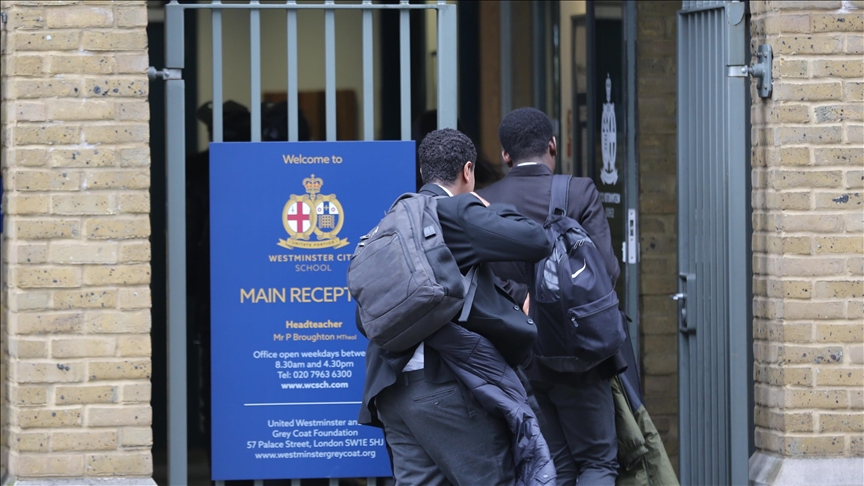Schools in England asked to prohibit use of cellphones, impose restrictions
Following steps of other European nations, UK government launched crackdown on mobile phones in schools to improve behavior and disruption
 ( Tayfun Salci - Anadolu Agency )
( Tayfun Salci - Anadolu Agency )
BIRMINGHAM, England
Schools in England have been given new guidance that intends to stop the use of cell phones during the school day as part of a plan to "minimise disruption and improve behavior in classrooms," according to an official statement.
In a statement released by the Department of Education on Monday, the government said many schools had already banned phones and the change would ensure a consistent approach.
By the age of 12, 97% of children have their own cell phone, according to the UK’s communications watchdog Ofcom. The agency says using cell phones in schools can lead to online bullying, distraction, and classroom disruption which, in turn, can lead to lost learning time.
Last year, UNESCO called for smartphones to be banned from schools as evidence showed it was linked to reduced educational performance and that excessive screen time had a negative impact on children’s wellbeing.
Schools will be supported to prohibit cell phone use with examples of different approaches including banning phones from the school premises, handing in phones on arrival at school, and keeping phones securely locked away at school.
Education Secretary Gillian Keegan said schools are places for children to learn and cell phones are, at a minimum, an unwanted distraction in the classroom.
“We are giving our hard-working teachers the tools to take action to help improve behavior and to allow them to do what they do best – teach,” Keegan said.
Technology Secretary Michelle Donelan said the opportunities brought by technology should not come at the expense of children’s wellbeing or education.
“That is why we have passed world leading legislation to make the UK the safest place in the world for young people to be online. Today’s announcement will support parents and educators further, helping give the next generation the best chance to realize their potential.”
The latest government data finds around 29% of secondary school students reported cell phones being used when they were not supposed to in most, or all, lessons.
The Department of Education said schools have seen success in prohibiting cell phones through tactics such as introducing lockers with charging points for students to ensure they do not come into classrooms.
“One school referenced in the guidance introduced this change and saw a positive impact overnight and within one year the whole culture of the school had changed. Without access to cell phones, pupils have the headspace and calm environment to learn, and staff have the quiet and focus to teach in.”
The move will bring England in line with steps taken by other countries that have restricted cell phone use including France, Italy, and Portugal.




